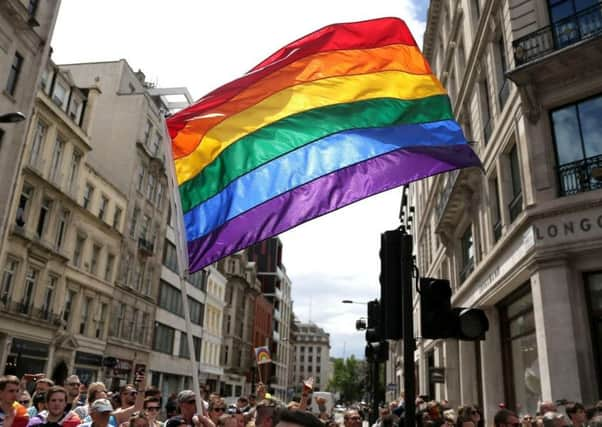A fifth of NI admit ‘prejudice’ towards transgender people, university report finds


The report has been released as part of a joint initiative between Queen’s University Belfast and Ulster University.
Entitled ‘The Missing T: Baselining Attitudes Towards Transgender People in Northern Ireland’, the report used data from the 2018 Northern Ireland Life and Times (NILT) Survey.
Advertisement
Hide AdAdvertisement
Hide AdIt was co-authored by Dr Siobhán McAlister, from the School of Social Sciences, Education and Social Work at Queen’s University Belfast and Dr Gail Neill, from School of Applied Social and Policy Sciences at Ulster University.
The results from the research indicate that the majority of people (72%) in Northern Ireland described themselves as ‘not prejudiced at all’ towards people who are transgender, whilst 21% expressed some level of prejudice (‘very’ or ‘a little’), and 7% that they did not know.
Some of the key findings include:
- 21% of NILT respondents said that they were prejudiced towards transgender people
- 72% of NILT respondents described themselves as ‘not prejudiced at all’
Advertisement
Hide AdAdvertisement
Hide Ad- Those who know a transgender person were less prejudiced and more approving of transgender rights
- Over half of the survey population are approving of, or comfortable with, transgender people accessing public toilets, utilising domestic violence refuges and changing their legal gender
- Females were considerably more comfortable than males of transgender people accessing domestic violence refuges, and of an individual’s right to change their birth certificate to reflect their acquired gender.
Dr McAlister said: “Internationally, there are relatively few national surveys of attitudes towards transgender people. While the Northern Ireland Life and Times (NILT) survey has previously collected data on attitudes towards LGB (lesbian, gay, bisexual) individuals, relationships, marriage and family, it has not collected attitudes towards transgender people.
Advertisement
Hide AdAdvertisement
Hide Ad“The survey results point to positive attitudes towards transgender people and fairly high levels of support for the realisation of their rights.”
Dr Neill said: “In recent times we have witnessed unprecedented levels of interest in matters of gender and sexual diversity and identity. This has resulted in part from increased visibility, news coverage, entertainment storylines and celebrity culture. While part of the ‘LGBT’ (lesbian, gay, bisexual, transgender) acronym, the ‘T’ has often been overlooked in popular debate, research and services. The NILT data demonstrates the importance of collecting and analysing attitudes towards gender identities separately to attitudes towards sexual identities.”
In 2018, a representative sample of 1201 people aged 18 years or over responded to questions on relations between different communities living in Northern Ireland, including: migrant workers, Brexit, abortion, criminal justice system, palliative care, and attitudes to transgender people.